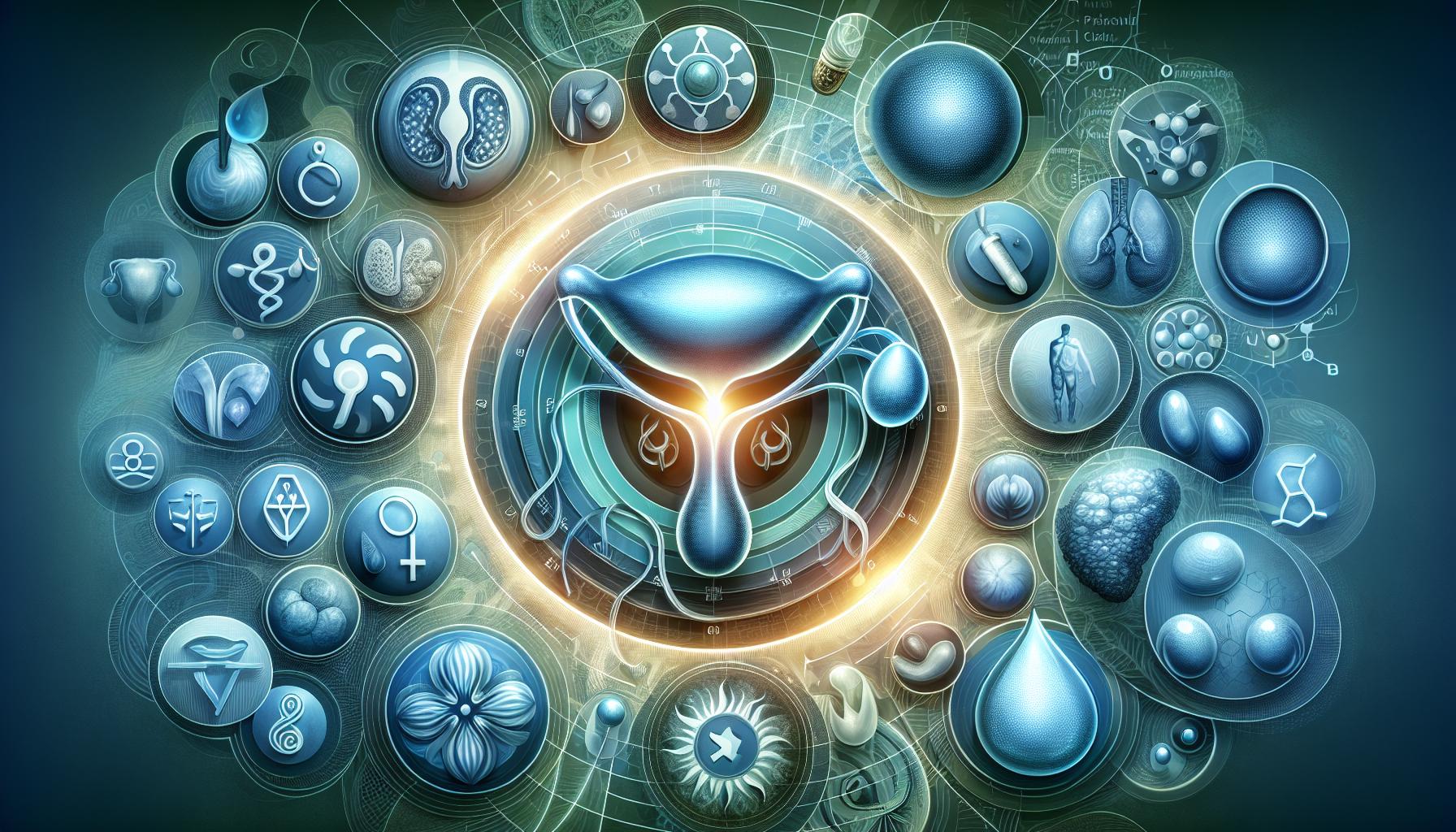
A Deep Dive into the Hormonal Hurdles for Prostate Health
So here’s the million-dollar question: “Which hormone is inhibited during treatment for benign prostatic hyperplasia (BPH)?” Glad you asked! Dihydrotestosterone (DHT), a byproduct of testosterone, is the hormone that’s inhibited during treatment for BPH. With its crucial role as a contributor to prostate enlargement, scientific and medical communities focus their efforts on inhibiting DHT as a way to treat BPH. But like gentle waves creating ripples in a serene pond, there are far-reaching effects and intriguing interplay of hormones involved. Hence, the spotlight of our discussion will illuminate not just the inhibition of DHT, but also the broader hormonal landscape involved in BPH treatment.
The Intertwined Tale of Testosterone and DHT
Testosterone, the lead actor in the play of male hormones, often takes an unwarranted backseat when it comes to BPH. The truth of the matter is, testosterone’s role in BPH is as significant as the supporting role in a blockbuster. Often stealing the limelight is the less prevalent but far more potent DHT. While the body produces DHT from testosterone, the former—ironically—has a more powerful influence on prostate tissues, causing them to proliferate, leading to the condition of BPH.
The DHT Dilemma and BPH
BPH’s relationship with DHT is akin to the classic ‘good guy turned bad’ movie plot. DHT, under normal circumstances, contributes to the development of male secondary sexual characteristics. But when DHT shifts gear, it fuels the growth of prostate glands, leading to BPH. It’s this double-edged sword role of DHT that makes it a tricky customer to deal with in the world of medical science.
Turning Down the DHT Dial with 5-Alpha Reductase Inhibitors
As the regulators in the theatre of hormones, the 5-alpha reductase (5-AR) enzymes, have a vital role to play. 5-AR are the agents that convert testosterone to DHT. But what if we could gently persuade these enzymes to feather their touch on this transition? This is exactly what 5-alpha reductase inhibitors do. Through this non-aggressive negotiation, these drugs ease the enlargement caused by BPH, making them a trusted tool in fighting this common male health concern.
The Allies in the Battle Against BPH: Finasteride and Dutasteride
In the medical toolkit against BPH, Finasteride and Dutasteride are the mainstays. Like superheroes with different powers but a common cause, these medicines inhibit different types of 5-AR while aiming for the same goal: reduction of DHT. And while they wage this thoughtful war against DHT, they also modestly increase the level of testosterone, proving their value in this nuanced interplay of hormones.
Balance Over Banishment: Less DHT, More Wellbeing
Lest we demonize DHT entirely, it’s important to remember balance is key. While high levels of DHT can cause problems like BPH, excessively low levels can also ripple out issues of their own. From decreased libido to potentially higher risks of certain diseases, the unexpected impacts of low DHT levels help us appreciate the fine balance in hormonal health. This is why treatments aim at inhibiting, not eliminating, DHT.
Managing BPH: A Multifaceted Mission
Addressing BPH isn’t a single-focus mission but a multifaceted approach. Combining hormonal treatments with lifestyle improvements can often steer the ship of health in the right direction. Exercise, diet, and staying hydrated – these tried-and-true health tips stand strong in the face of BPH as well.
In Conclusion
In the intricate tapestry of hormonal health, DHT is the thread that’s often brought under control in BPH treatments. Yet, this area remains a complex landscape, with many factors at play. And while the role of DHT in BPH might seem like a villainous plot twist, it’s a piece of the larger puzzle of our body’s beautifully balanced systems.
Frequently Asked Questions
1. Is DHT the only hormone involved in BPH?
No, DHT is not the sole actor. Other hormones like testosterone and estrogen also play roles. However, DHT is the one primarily inhibited during treatment.
2. Are Finasteride and Dutasteride the only treatments available for BPH?
They are common treatments, but not the only ones. Alpha-blockers, surgical interventions, and lifestyle modifications are among the other treatment options.
3. Can you completely eliminate DHT to cure BPH?
Our goal isn’t elimination, but regulation of DHT. The body needs a certain level of DHT for other functions, hence why we aim at inhibition.
4. Are there any side effects of inhibiting DHT?
Like most treatments, inhibiting DHT can have side effects such as decreased libido, compromised sexual function, and in rare cases, depression.
5. Can lifestyle changes reduce the risk of BPH?
Absolutely, maintaining a healthy weight, staying hydrated, regular exercise, and a balanced diet can all contribute to reducing the risk of BPH.


